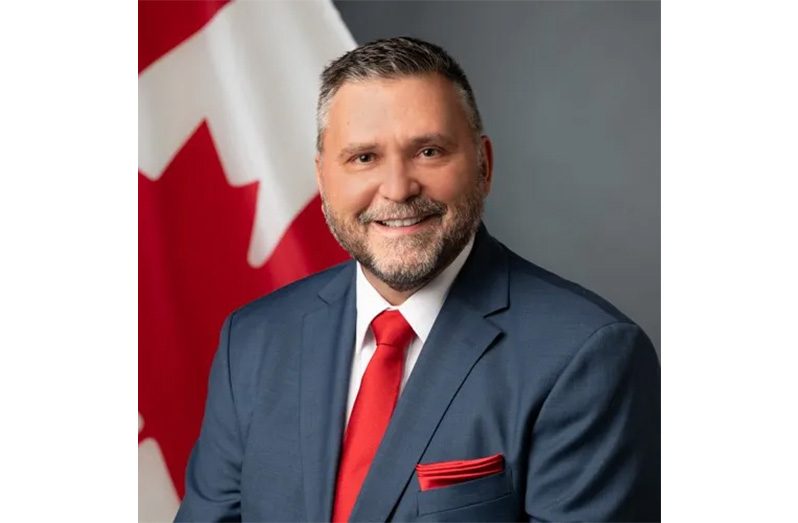CANADA has reaffirmed its commitment to supporting Guyana’s institutional development through the Canada-CARICOM Expert Deployment Mechanism (CCEDM) — a regional initiative aimed at strengthening governance, justice, and other critical sectors.
Canadian High Commissioner to Guyana, Sébastien Sigouin, made the announcement during the recent launch of a restorative justice training programme for local practitioners.
The ultimate goal of CCEDM, according to the Canadian government’s website, is to support Caribbean countries in their efforts to diversify and strengthen local economies, build strong and climate resilient communities, and reduce gender and economic inequalities.
During his remarks at the event, High Commissioner Sigouin said Canada remains firmly invested in the growth and resilience of Guyana’s public institutions.
He emphasised that additional Canadian experts will be deployed to provide technical support in priority areas as new needs emerge.
Sigouin acknowledged the long-standing partnership between Canada and Guyana, mentioning various initiatives to empower women, indigenous people, and improve access to justice, as well as efforts to modernise legal systems and enhance justice delivery across CARICOM countries.
“For example, we work with the Justice Education Society (JES) in British Columbia to empower women and Indigenous people; to train the police, the judiciary, and prosecutors in trauma-informed approaches and gender sensitivity; and to improve access to justice for the most vulnerable members of society,” the diplomat explained.
He emphasised the importance of restorative justice, a concept used in Canada for decades to address human rights violations and discrimination.
Sigouin stressed its role in fostering lasting solutions and peaceful societies through dialogue between victims, offenders, and communities.
“I think this initiative still shows a strong co-operation between Canada and Guyana,” he said.
With support from the CCEDM, Guyana successfully trained and certified 20 individuals to serve as restorative justice officers, creating a dedicated pool of professionals to staff centres across Regions Two, Three, Four, Five, and Six.
Also, the government has been able to access three advisers at no cost to the public coffers through this mechanism, all of whom possess the expertise needed to support the full launch of the new restorative justice centres.
High Commissioner Sigouin noted that Canada’s support for justice sector reform extends beyond Guyana, with similar partnerships being implemented across the wider Caribbean.
These regional initiatives aim to modernise legal systems through improved case management, the reduction of judicial backlogs, and the enhancement of justice delivery mechanisms.
Through the CCEDM, Canadian expertise is also being deployed in several other high-impact areas, such as trade policy and regulation, public sector governance and reform, tourism development, and environmental policy.
Countries currently receiving technical assistance under the CCEDM initiative include Antigua and Barbuda, Belize, Dominica, Grenada, Guyana, Jamaica, Saint Lucia, Saint Vincent and the Grenadines, and Suriname.



.jpg)








